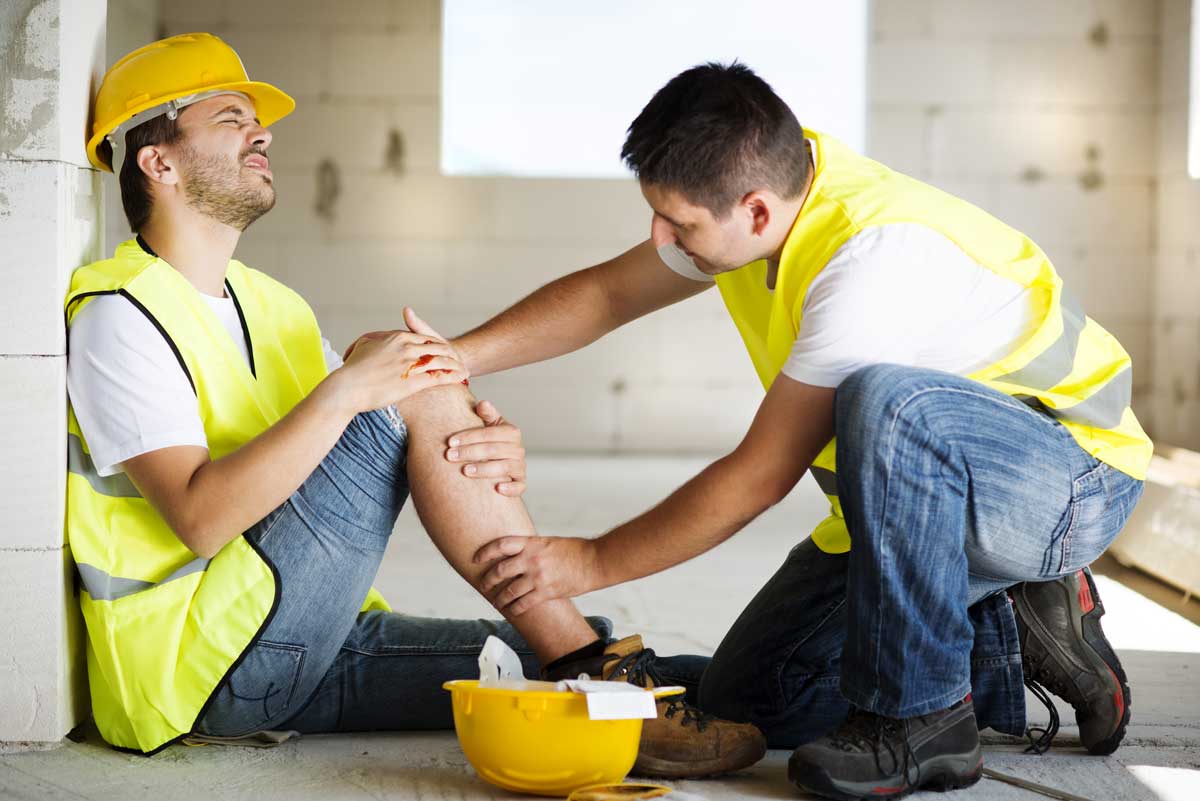Risks and Tendencies of Scaffolding
Risks and Tendencies of Scaffolding
Scaffolding is a temporary platform used in construction, usually seen at high rise buildings, to elevate and support workers. The scaffold consists of one or more planks with various methods for support depending on the form and use. For example, if it's being put together as an elevated surface such as a bridge then boards are laid out alternately like steps; some are laid up in slanting position to be used as a climbing tool for laborers providing them reliable stability and offering firmer grip than ladders. Scaffolds give builders access without having to climb up high ladders which could lead them off balance leading into accidents like
slips and falls.
The
Bureau of Labor Statistics (
BLS) estimates that more than
2.3 million construction workers, or
65% of the workforce in this industry
work on scaffolds every day which can present many dangers to them if they are not properly guarded against accidents. This includes
4500 injuries and 60 deaths each year from mishaps involving these structures.

One of the
most current issue that the US construction industry is facing are
scaffolding related construction accidents is falls.
Slips are also a major cause, particularly in wet conditions or when workers wear slippery soled shoes on steep surfaces such as roofing shingle sheets and fall doesn't count out on the picture as well, given this data:
- Majority of scaffolding accidents in the US are caused by: collapse of a footing or the whole scaffolding, slipping/tripping on a wet scaffolding footing, and construction workers are susceptible of falling objects while working such as debris and materials.
- While 30% of scaffolding accidents are caused by: extreme weather conditions (storm and wind), electrocution, dangerous substances situated near scaffolding, and lacking fall protection.
The issue in question here has been brought into light by recent events such as fatal accidents involving construction workers falling from their scaffolds, which have recently risen this number exponentially higher than it was before- at least according to professors who study economics or labor issues within organizations like Cornell University's ILR school (
Institute of Labor Relations).
The problem of scaffolding accidents can
cost up to $90 million every year, with lost days due to these workplace hazards. These numbers are set only on the basis that an average worker is absent for a week and earns 10 dollars per hour.
Scaffold Accidents Consequences
Scaffoldings are naturally tall and damages sustained are unimaginable towards victims of fall from it, factors such as personal protective equipments and surrounds may as well help and change outcomes but injuries are still significant such as:
- Fractures (broken bones)
- Cuts, lacerations, and other skin damages
- Amputations (fractures and bad lacerations may lead to amputation depending on the respond)
- Spinal Cord Injuries
- Traumatic Brain Injuries
- Death
How to prevent Scaffold Accidents
Construction sites are very dangerous, making it important that you know what to do if something goes wrong. The most common accidents happen because of a fall from height which can lead to more serious injuries such as bone fractures and head trauma. To prevent this type of accident:
- make sure your ladder is stable by placing the base on solid ground with weight evenly distributed across its length before climbing up or down;
- never stand sideways when working at extreme heights without railings for support;
- don't work while impaired by drugs or alcohol (employers are responsible for this one; keeping their employees work worthy);
- wear non-slip footwear like shoes made out of rubberized soles in case you need to walk over wet surfaces (such as liquids);
- also be aware that scaffold structures have been known collapse unexpectedly
- this maybe an iteration but, make sure work with personal protective equipment
Construction is a dangerous career. Construction injury can happen because of the employer's negligence or poorly planned and executed projects, even if you are wearing all the necessary safety gear like hard hats and gloves to protect yourself from potential hazards. If this has happened to you before, don't hesitate in filing
personal injury claims against negligent employers so that they will take responsibility for their actions within your workplace environment.
Ryan LLP is a law firm that emphasizes the representation of injured victims. We specialize in medical malpractice, construction injury and road accident sustenance cases because we know how devastating these types of accidents can be for those who are seriously hurt or killed by negligent doctors, builders and drivers.
 One of the most current issue that the US construction industry is facing are scaffolding related construction accidents is falls. Slips are also a major cause, particularly in wet conditions or when workers wear slippery soled shoes on steep surfaces such as roofing shingle sheets and fall doesn't count out on the picture as well, given this data:
One of the most current issue that the US construction industry is facing are scaffolding related construction accidents is falls. Slips are also a major cause, particularly in wet conditions or when workers wear slippery soled shoes on steep surfaces such as roofing shingle sheets and fall doesn't count out on the picture as well, given this data: